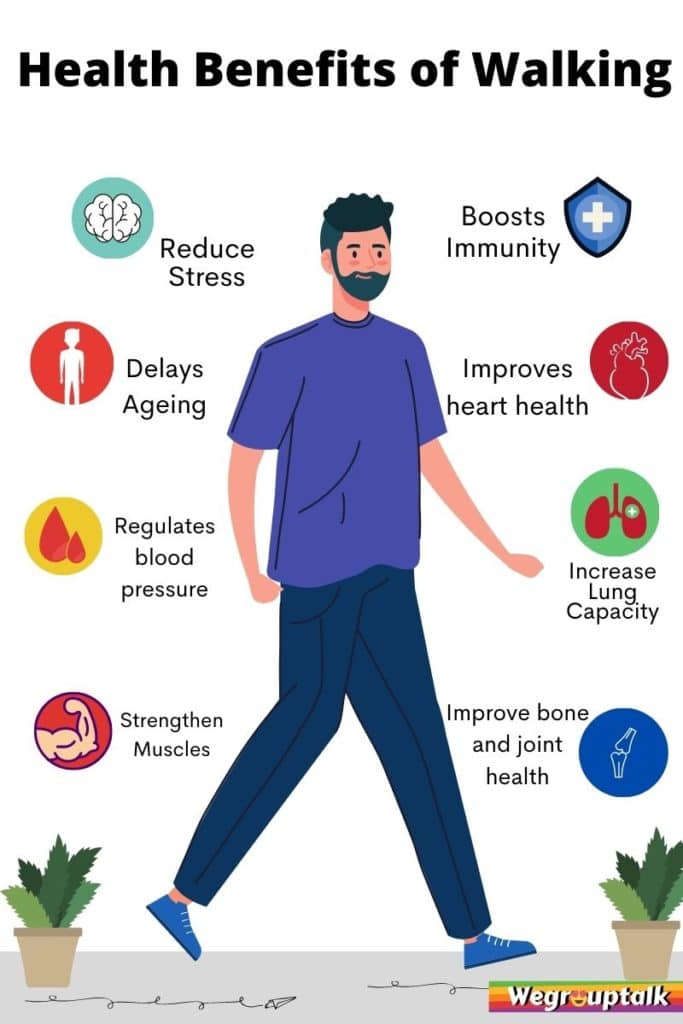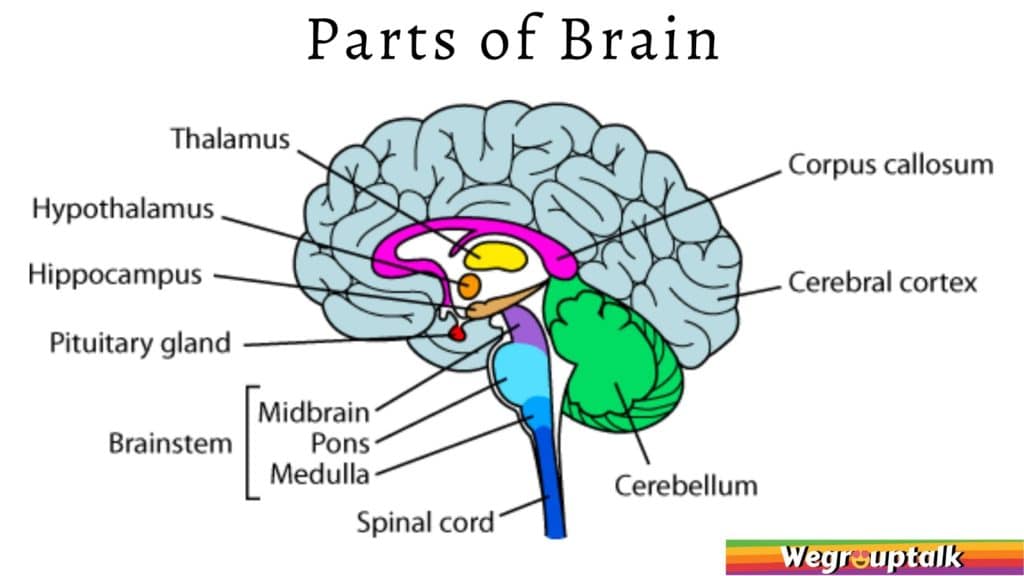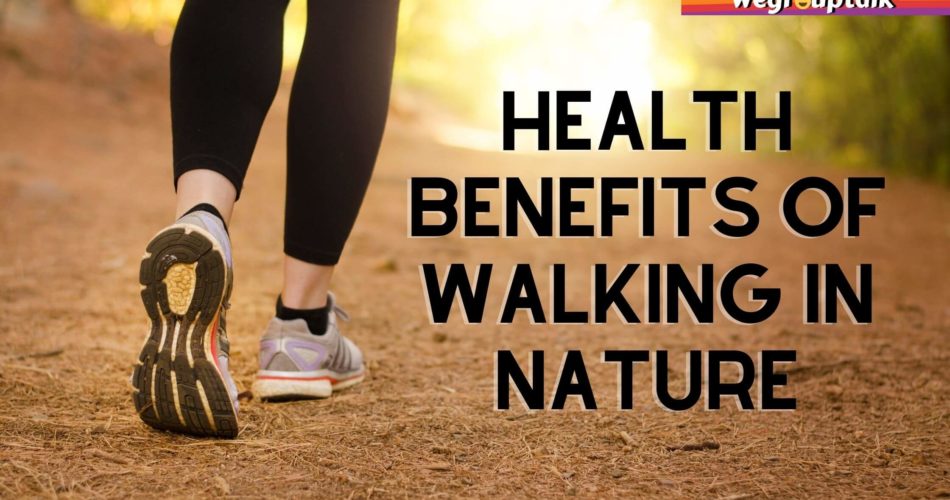Nature always wears the colours of spirit and what could be better and calming than to walk in nature. Walking as itself is beneficial for our physical fitness but walking in nature even smoothens our mind and soul.
Well, to walk in nature is to witness a thousand miracles. In every walk in nature, one receives far more than he seeks. In this pandemic, how is everyone smiling and still almost dead inside? But the only thing that I find lively and rejuvenating is the view of free birds flying in the open sky, animal sprawling on the road, tress fluttering om roadsides and jungles in the natural breezes and the rodents who are collecting their stock for hibernation.
‘To give is to have more’- this statement is proven by nature. There is nothing else that can make you feel more alive than the gift of green abundance on this blue planet.
Why it is important to walk?
Being outdoors has scientifically proven to reduce muscle tension, production of stress hormones, blood pressure and heart rate. Science is also proving that time spent outdoors can have a rejuvenating and a calming effect on your physical and mental health. I am sure we have all felt that rejuvenating effect of nature, as to how being outdoors amidst the fresh air, cool breezes, trees and chirping of birds soothes our brain and bring our bodies and minds back in rhythm. So, find time every day to spend time with nature and maximize your connection with it, even if it’s just for a while.
Effects of walking on physical health
Burning of calories
Walking can help you in burning your calories. This will further help you in maintaining on losing your weight. There are several factors on which it depends; it includes: the distance you cover, your walking speed and the terrain you walk on; walking uphill burns more calories than the flat or a downhill surface.
Reduces joint pains
Walking in nature can help you in protecting your joints. It is because walking helps in strengthening and lubricating the muscles, and it, in turn, supports the joints. It has also proved to be beneficial for people having arthritis. Reports have said that walking 5 to 6 miles in a week helps in preventing arthritis.
Follow us on INSTAGRAM, FACEBOOK and TWITTER to stay connected~!!

Boosts the immunity
Walking in nature helps in reducing the risk of having a cold or flu. A small study found out that adults who walk at a moderate pace for around 30 minutes in a day faced fewer infections and a very few respiratory tract problems than the ones who did not work at all.
ALSO READ: 5 Ways to Strengthen Your Immune System
Strengthening of the heart
Studies say that if a person walks at least 30 minutes in a day and five days in a week, then he/she is at a lower risk of coronary heart diseases by approximately 19%. And this risk can reduce even more if the distance and duration of the work you do per day increases.
Increases the strength of muscles
You must be thinking that how does walking help in increasing the strength of muscles. Walking strengthens the muscles of your legs. Well, it builds muscle mass because it causes several muscles to flex repeatedly, which leads to the muscle becoming a bigger and powerful one.
Walking will also help in toning up your muscles and will give a cut appearance to it. To build up more strength and increase the muscles of your legs, try walking uphill or find routes having stairs.
Psychological benefits
Being in nature relieves stress
Doing any physical activity helps us relieve stress and anxiety. It is shown by many experiments that after or during exercise, people perform better on tests of memory even on very mild exertion. The reason behind this is that it changes our body’s chemistry. When we go out for a walk, our heart pumps faster, circulating more oxygen and blood not just to the muscles but to all the organs—including the brain, hence relieving stress.
Our senses sometimes get overloaded in modern culture; the opportunity to reconnect with the spirit can be enhanced by reconnecting with nature and more basic stimulations, it will definitely help in reducing stress.
Nature makes you less brooding and more happier
As mentioned by the Cambridge dictionary brooding basically means “making you feel uncomfortable or worried as if something bad is going to happen” and I am sure we all must be familiar to this state of mind, but if this thought persists for long, then it might not be good for us. Studies also show that it can be a precursor to depression and is more common among city dwellers as compared to people living outside urban areas.

Mr Bratman, a graduate student from the Emmett Interdisciplinary Program in Environment and Resources at Stanford University, who has studied the psychological effects of urban living and has done some research in this area strongly suggested that getting out into natural environments could be a quick and an easy way to improve moods for urban area dwellers.
In an earlier study published that, he and his colleagues found that volunteers who walked briefly through a lush, green portion of the Stanford campus were more attentive and happier afterwards than volunteers who strolled for the same amount of time near heavy traffic. But, he also said that there is a tremendous amount of study that still needs to be done in this aspect.
Nature increases creativity and relieves attention fatigue.
Today, we live in a world that constantly pulls for our attention because of the ubiquitous technology. But a lot of scientists believe that our brains are not made for this kind of information bombardment, as it leads to mental fatigue, overwhelm, and burnout, requiring “attention restoration” to get back to a normal, healthy state of mind. It also accounts for improved scores on cognitive tests.
DAVID Strayer, who has studied Cognition and Neural Science, is one of those researchers. He believes that being out in nature helps in restoring depleted attention circuits, which then help us be more open to creativity and problem-solving.
“When you use your cell phone to talk, text, shoot photos, or whatever else you can do with your cell phone, you’re tapping the prefrontal cortex and causing reductions in cognitive resources,” he says.

Strayer and his colleagues are also specifically looking at the effects of technology by monitoring people’s EEG readings (electroencephalogram readings; which is a measure of brain waves) while they walk in an arboretum or a botanical garden, either while talking on their cell phone or not. So far, they’ve found that participants with cell phones appear to have EEG readings consistent with an overload of attention, and can recall only half as many details of the arboretum they just passed through, compared to those participants who were not on their cell phones.
Although Strayer’s findings are found to be preliminary, but they are consistent with other people’s findings on the importance of nature, I regard attention restoration and creativity.
“If you’ve been using your brain to multitask—as most of us do most of the day—and then you set that aside and go on a walk, without all of the gadgets, you’ve let the prefrontal cortex recover,” said Strayer. “And that’s when we see these bursts in creativity, problem-solving, and feelings of well-being.”
Nature may make you more generous and kind.
Some researchers namely Juyoung Lee, GGSC director Dacher Keltner, and other at the University of California, Berkeley in a series of experiments published in 2014 studied the potential impact of nature on the willingness to be generous, trusting, and helpful toward others, while considering what all factors might be influential in the relationship.
In a study, the researchers asked people to fill out a survey about their emotions while sitting at a table where there were more or less beautiful plants were planted. Afterwards, the participants were told that the experiment was done and that they could leave, but if they wanted to, they could volunteer to make paper cranes for a relief effort program in Japan. The number of cranes they made (or didn’t make) was used as a measure of their intent to benefit other people or society as a whole or their willingness to help others.
Results showed that the presence of more beautiful plants eloquently increased the number of cranes made and that this increase was, again brought about by positive emotion elicited by natural beauty. The researchers concluded that experiencing the natural beauty of the mother earth enhanced positive emotion—perhaps by inspiring admiration, a feeling related to wonder, with the sense of being part of something bigger than oneself—which then lead to social behaviours like charity, generosity, benevolence, unselfishness, kind-heartedness, magnanimity etc.
Nature makes you “feel more alive and lively.”
The fact that nature makes you feel more lively should not come as a surprise to you after knowing about all these benefits. Nature helps us in feeling more vital and alive as the energy which we receive when we are outdoors making us joyous and helps in relieving the everyday stresses of our hectic lives.
Effects on Brain
Walking in nature have effects not only on our mood, but it relieves stress from the brain along with many of the others which are given below.
Walking increases the flow of blood in the brain
CBS News once reported in 2017 that a recent study discovered twenty minutes of walking increased cerebral blood flow and as the website Brain MD Health explained, blood flow helps to bring “nutrients to your cells and takes away toxins.” So, walking is not only good for our brain but also for our body.
Strengthening of Hippocampus
If anybody struggles with forgetfulness and memory problems, then walking may be one of the ways to clear up the cognitive haze. Going out for a walk, even for a short while consistently can increase the size of one’s hippocampus — the region of the brain that plays a critical role in forming and storing memories along with the associated feelings that go along with those memories.

Release of Endorphins
Just like all forms of exercise, walking encourages our brain to release endorphin, which is a neurochemical that boosts mental health and decreases sensitivity to pain and stress, it sometimes even makes you feel euphoric.
So, becoming consistent with your walking routine can also be a great morale booster. You can’t help but feel proud of yourself when you conquer your daily goal — which, in turn, inspires you to keep the streak alive the next day and so on,” says Blozy. “Those success-based endorphins will empower you in other areas of your life both personally and professionally.”
Walking in nature is recantation. How can one become more vigilant and alert and yet remain connected to the abundance on earth – I don’t think so there could be anything better other than walking in nature and finding solace. So, I would like to plead you all to go out for a walk and stay mentally fit by doing so as being out in nature is necessary to the very essence of who we are.
To Read about 10 Best Places to Visit in Kashmir. Click Here




